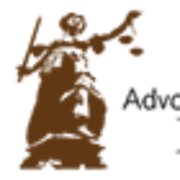Best Defamation Lawyers in Netherlands
Share your needs with us, get contacted by law firms.
Free. Takes 2 min.
Or refine your search by selecting a city:
List of the best lawyers in Netherlands
About Defamation Law in Netherlands:
Defamation in the Netherlands refers to the act of spreading false information about someone that damages their reputation. It is considered a form of unlawful behavior that can lead to legal consequences. In the Netherlands, defamation laws aim to protect individuals and businesses from unjustified attacks on their reputation.
Why You May Need a Lawyer:
You may need a lawyer for defamation cases in the Netherlands if you have been falsely accused of something that has harmed your reputation, or if you are facing legal action from someone who is spreading false information about you. A lawyer can help you understand your rights, assess your options, and navigate the legal process.
Local Laws Overview:
In the Netherlands, defamation is covered under both civil and criminal law. Civil defamation cases usually involve seeking compensation for damages caused by false statements, while criminal defamation cases may result in fines or imprisonment for the person responsible for spreading false information. It is important to note that truth is a valid defense in defamation cases in the Netherlands.
Frequently Asked Questions:
1. What qualifies as defamation in the Netherlands?
Defamation in the Netherlands involves the dissemination of false information that damages someone's reputation.
2. Can I be sued for defamation if I share negative opinions about someone?
Opinions are generally not considered defamation, as long as they are based on facts or clearly stated as opinions.
3. Is truth a defense in defamation cases in the Netherlands?
Yes, truth is a valid defense in defamation cases in the Netherlands.
4. What damages can I claim in a defamation case?
In a defamation case, you may be able to claim compensation for financial losses, emotional distress, and damage to your reputation.
5. How long do I have to file a defamation case in the Netherlands?
The statute of limitations for defamation cases in the Netherlands is generally five years.
6. Can a public figure sue for defamation in the Netherlands?
Public figures can sue for defamation in the Netherlands, but they may have to meet a higher standard of proof.
7. Can I be criminally prosecuted for defamation in the Netherlands?
Yes, spreading false information with the intent to harm someone's reputation can lead to criminal prosecution in the Netherlands.
8. Can I settle a defamation case out of court?
Yes, defamation cases can often be resolved through settlement negotiations without going to trial.
9. What evidence do I need to prove defamation in court?
To prove defamation in court, you may need evidence such as witness statements, documentation of the false statements, and proof of harm to your reputation.
10. Is it worth pursuing a defamation case in the Netherlands?
Whether it is worth pursuing a defamation case depends on the specific circumstances of your case, including the extent of the harm caused and the likelihood of a successful outcome.
Additional Resources:
For more information on defamation laws in the Netherlands, you can consult with legal professionals, the Dutch Bar Association, or the Netherlands Authority for Consumers and Markets (ACM).
Next Steps:
If you believe you have been a victim of defamation in the Netherlands, it is advisable to seek legal advice to understand your options and rights. A lawyer specializing in defamation cases can help you assess the situation and decide on the best course of action to protect your reputation and seek appropriate remedies.
Lawzana helps you find the best lawyers and law firms in Netherlands through a curated and pre-screened list of qualified legal professionals. Our platform offers rankings and detailed profiles of attorneys and law firms, allowing you to compare based on practice areas, including Defamation, experience, and client feedback.
Each profile includes a description of the firm's areas of practice, client reviews, team members and partners, year of establishment, spoken languages, office locations, contact information, social media presence, and any published articles or resources. Most firms on our platform speak English and are experienced in both local and international legal matters.
Get a quote from top-rated law firms in Netherlands — quickly, securely, and without unnecessary hassle.
Disclaimer:
The information provided on this page is for general informational purposes only and does not constitute legal advice. While we strive to ensure the accuracy and relevance of the content, legal information may change over time, and interpretations of the law can vary. You should always consult with a qualified legal professional for advice specific to your situation.
We disclaim all liability for actions taken or not taken based on the content of this page. If you believe any information is incorrect or outdated, please contact us, and we will review and update it where appropriate.
Browse defamation law firms by city in Netherlands
Refine your search by selecting a city.
















